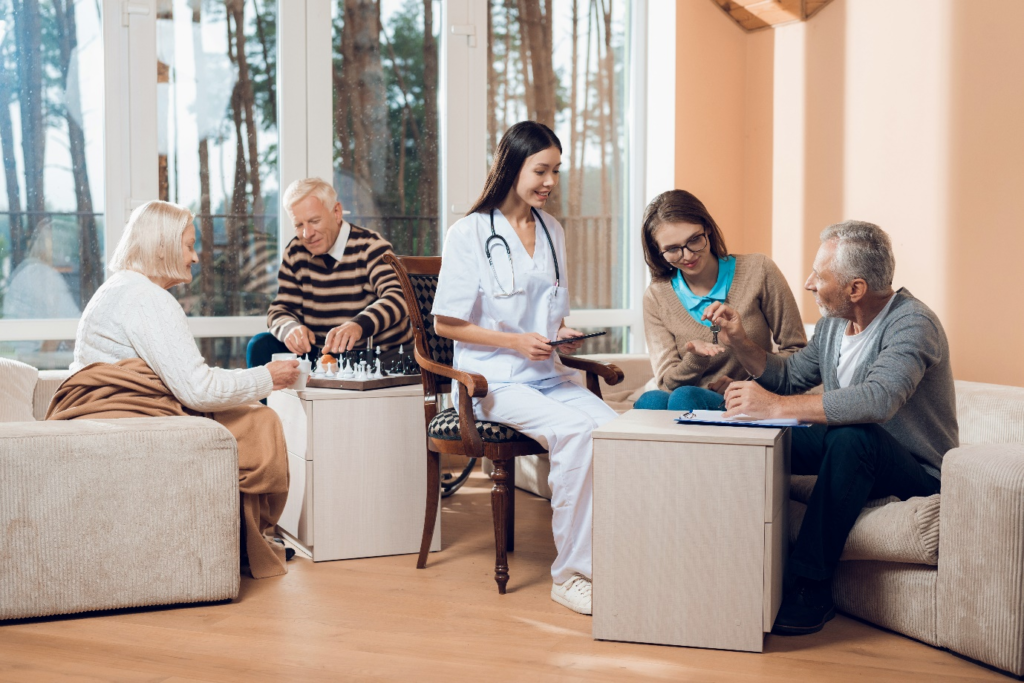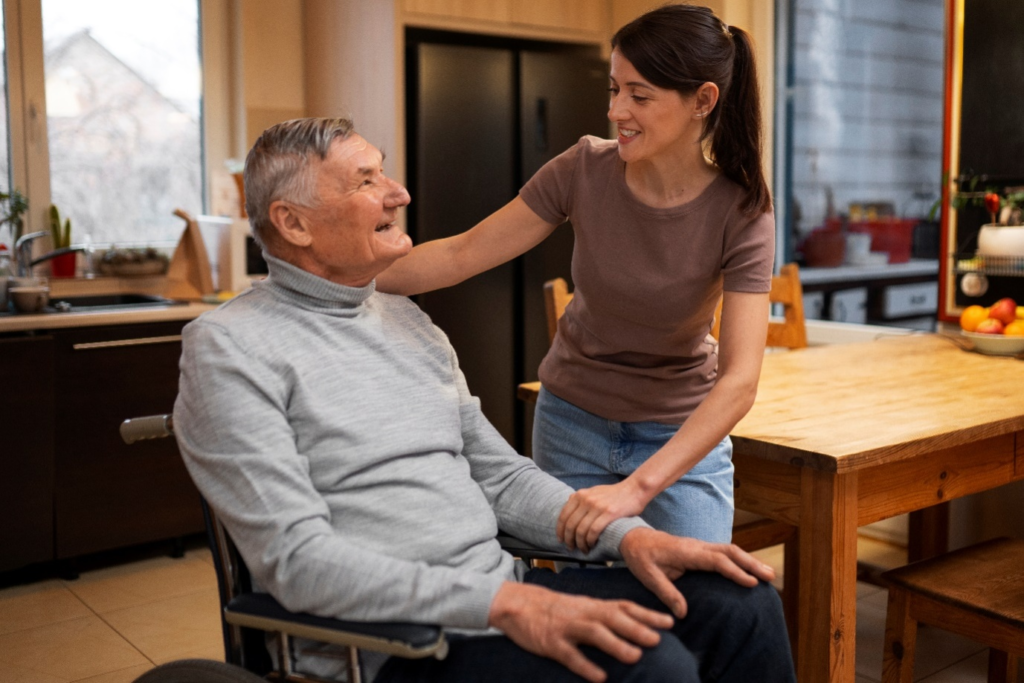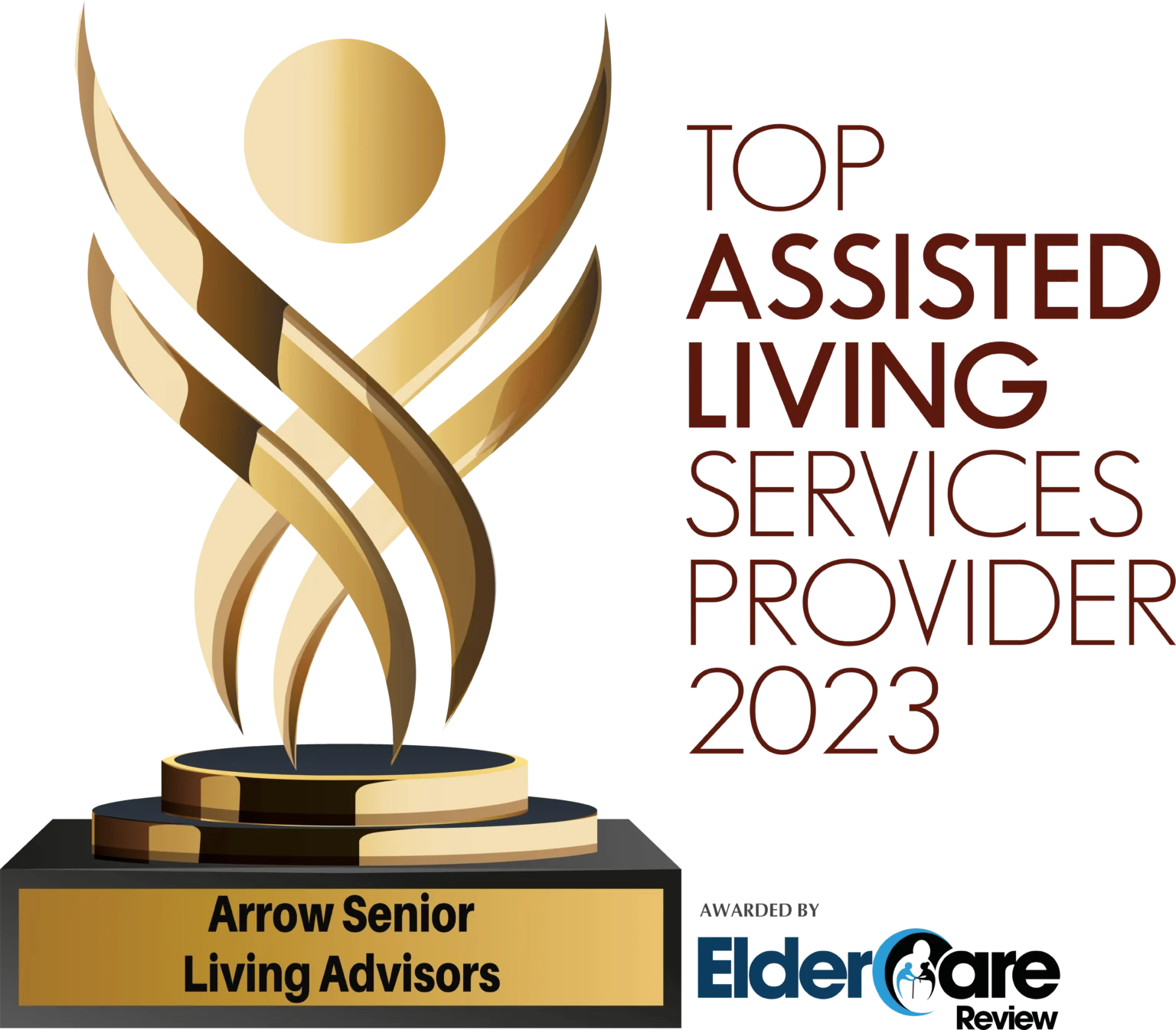Living on your own can become more of a struggle as you grow older. Perhaps everyday tasks like preparing meals, doing laundry, or managing medications have become more difficult. Maybe feelings of isolation and loneliness begin to creep in.
This is where senior assisted living communities step in, offering a warm and supportive environment that fosters independence while providing a helping hand when needed.
But what exactly does assisted living entail? It goes far beyond just daily care. It’s a mix of a multitude of services designed to enrich lives, promote well-being, and provide peace of mind for both residents and their families.
This blog explores various assisted living services to help you navigate the diverse offerings of these senior living communities.
What To Do Assisted Living Services Include?
Here’s a closer look at the threads that make up the supportive fabric of assisted living:
Essential Daily Care
This forms the foundation of assisted living services, ensuring residents receive the help they need with activities of daily living (ADLs) such as bathing, dressing, medication management, and mobility assistance. Trained and compassionate caregivers are available 24/7 to provide support with a gentle touch, respecting resident privacy and dignity.
A Haven of Comfort and Convenience
Imagine beautifully appointed apartments or private rooms that feel like home, complete with emergency call systems for added peace of mind. Assisted living communities offer housekeeping and laundry services, freeing residents to focus on activities they enjoy.
Delicious and nutritious meals are prepared on-site by professional chefs, often catering to dietary restrictions and preferences. Many communities also boast amenities like fitness centers, beauty salons, and landscaped walking paths, creating a resort-like atmosphere.
Unexpected Amenities Beyond the Basics
Many assisted living communities go above and beyond by offering unique amenities that cater to a wide range of interests. Art studios allow residents to unleash their creativity, while libraries overflowing with books and comfortable reading nooks provide a haven for bookworms. Movie theaters with plush seating and popcorn machines bring the magic of the silver screen to life.
For the musically inclined, grand pianos and organized choir practices foster a sense of community and shared passion. Some communities even boast rooftop gardens where residents can connect with nature, grow herbs for on-site meals, or simply enjoy the fresh air.
Staying Active and Engaged
One of the most enriching aspects of assisted living is the vibrant social and activity calendar. From fitness classes designed for all ability levels and educational programs on a variety of topics to movie nights, game nights, and musical performances, there’s something for everyone. These activities not only provide entertainment and connection but also promote cognitive function, overall well-being, and a sense of purpose.

Combating Loneliness and Isolation: The Power of Socialization
Social isolation is a serious concern for many older adults and can lead to health complications. Assisted living communities provide a much needed vital antidote. Regular interaction with peers and participation in group activities combats feelings of loneliness and fosters a sense of belonging. Residents can develop new friendships based on shared interests, engage in stimulating conversations, and enjoy a sense of community.
Assisted living communities often host events and activities specifically designed to encourage socialization, such as group outings to museums or local attractions, potlucks, and themed parties.
Medical Support at Your Fingertips
Assisted living communities often have on-site nurses or provide access to visiting healthcare professionals. This ensures residents receive regular health monitoring, medication management, and coordination with their primary care physicians. Some communities may even offer additional services such as physical or occupational therapy.

A Personalized Approach to Healthcare
Unlike nursing homes, which provide a higher level of medical care, assisted living communities focus on preventative measures and maintaining a resident’s current health status. Registered nurses or licensed practical nurses (LPNs) typically conduct regular health assessments and monitor vital signs.
They also work closely with residents’ primary care physicians to ensure continuity of care and medication management. Some communities may offer on-site physical or occupational therapy services to help residents regain strength and improve their functional abilities.
The Importance of Individualized Care Plans
Perhaps a resident requires assistance with showering and dressing but enjoys preparing their own breakfast. Another resident may be adept at managing their medications but needs help with housekeeping.
Assisted living communities understand that no two residents are alike, which is why they develop personalized care plans that cater to each individual’s unique needs and preferences. These care plans are reviewed and updated regularly by a team of caregivers, nurses, and social workers to ensure they continue to meet the evolving needs of each resident.
Supporting Independence and Autonomy
A core principle of assisted living is to empower residents to maintain their independence for as long as possible. This not only fosters a sense of dignity and self-worth but also contributes to overall well-being.
Caregivers are trained to provide just the right amount of assistance, allowing residents to complete tasks on their own whenever possible. For instance, a caregiver might offer verbal cues or reminders instead of taking over a task entirely. This approach encourages residents to continue utilizing their abilities while ensuring their safety.
Technology as an Enabling Tool
Technology is playing an increasingly important role in assisted living communities, offering innovative ways to promote resident independence and safety. Wearable devices can monitor vital signs and alert caregivers of potential health concerns. Smart home features like voice-activated lighting and thermostats allow residents to control their environment with ease. Video conferencing technology can connect residents with loved ones who live far away, fostering a sense of connection and combating feelings of isolation.
Transportation Services
Many assisted living communities offer transportation services, eliminating the worry of driving or relying on public transportation. Residents can enjoy scheduled outings to shops, restaurants, cultural events, and religious services, maintaining an active and engaged lifestyle. This not only provides opportunities for socialization but also helps residents stay connected to their communities.
Finding the Perfect Fit with Next Level Senior Advisors
The decision to move to an assisted living community is a personal one. At Next Level Senior Advisors, we understand the emotional weight of this decision and are here to guide you through the process.
We can help you navigate your options, explore assisted living services in Charlotte, and find a community that feels like home for your loved one.
Don’t hesitate to reach out to us today for a free consultation. We’ve helped countless families in Oklahoma City, Tulsa, Wichita, St. Louis, Houston, Lubbock, San Antonio, Albuquerque, Santa Fe, Des Moines, Charlotte, and Allentown, and we’re here to help you too!




